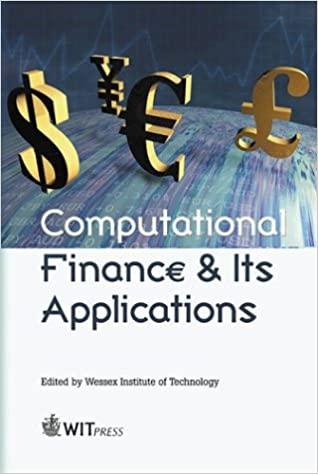Answered step by step
Verified Expert Solution
Question
1 Approved Answer
Which of the following statements about risk is FALSE? a. An investor can eliminate systemic risk by increasing the number of investments in the portfolio.
Which of the following statements about risk is FALSE?
a. An investor can eliminate systemic risk by increasing the number of investments in the portfolio.
b. Idiosyncratic risk is tied to a specific investment position.
c. Increasing the number of investments in the portfolio will reduce risk by diversifying, but it will never eliminate it altogether.
d. A stock with a higher beta will typically be a higher risk company.
2. What is a stocks alpha?
a. The measure of return risk relative to the general market.
b. The expected return ratio of the stock compared to the market.
c. The linear additional return expected over the stocks relationship to the broader market.
d. A measure of how dominant a firm is in its industry.
3. What must be true in a world with only 2 risky investment options?
a. If they are perfectly correlated, then the efficient frontier will be a very bowed curve.
b. This would result in all portfolios investing completely in only one of the two risky investments regardless of correlation.
c. The minimum variance portfolio will be completely allocated to the investment that has the lowest variance.
d. If they have a correlation coefficient of -1, then it should be possible to invest in a combination of the two investments and earn the risk-free rate. Otherwise, an arbitrage opportunity would arise.
4. What statement about the minimum variance portfolio below is FALSE?
a. The minimum variance portfolio will increase allocation away from a security if the other securities experience a sudden decrease in risk (assuming nothing else changes).
b. The minimum variance portfolio will increase allocation towards a security if its expected returns increase (assuming nothing else changes).
c. The impact to allocations from a change in correlation can be positive or negative depending on the circumstances.
d. The minimum variance portfolio will increase allocation away from a security if that security experiences a sudden increase in risk (assuming nothing else changes).
5.
The risk-free rate is 2.0% and the expected market return is 10.0%. Stock A has a beta of 0.8 and stock B has a beta of 1.4. The expected return of stock A is 9.4%, and the expected return of stock B is 12.0%. What is stock Bs alpha?
a. -3.8%
b. -1.8%
c. 0.7%
d. 2.1%
6. What statement below about the equilibrium CAPM state is TRUE?
a. All investors hold unique but diversified portfolios.
b. The Capital Market Line (CML) is not the best possible Capital Allocation Line (CAL).
c. The average investors degree of risk aversion will align with the risk premium of the market portfolio.
d. Active managers would experience significant cash inflows with investors seeking opportunities to get positive alpha.
Step by Step Solution
There are 3 Steps involved in it
Step: 1

Get Instant Access to Expert-Tailored Solutions
See step-by-step solutions with expert insights and AI powered tools for academic success
Step: 2

Step: 3

Ace Your Homework with AI
Get the answers you need in no time with our AI-driven, step-by-step assistance
Get Started


